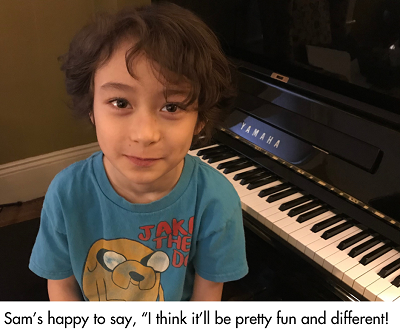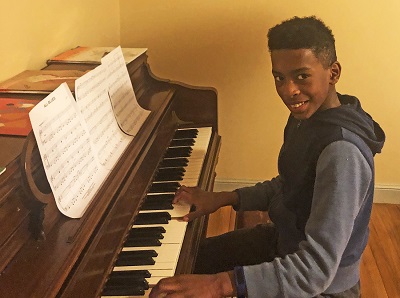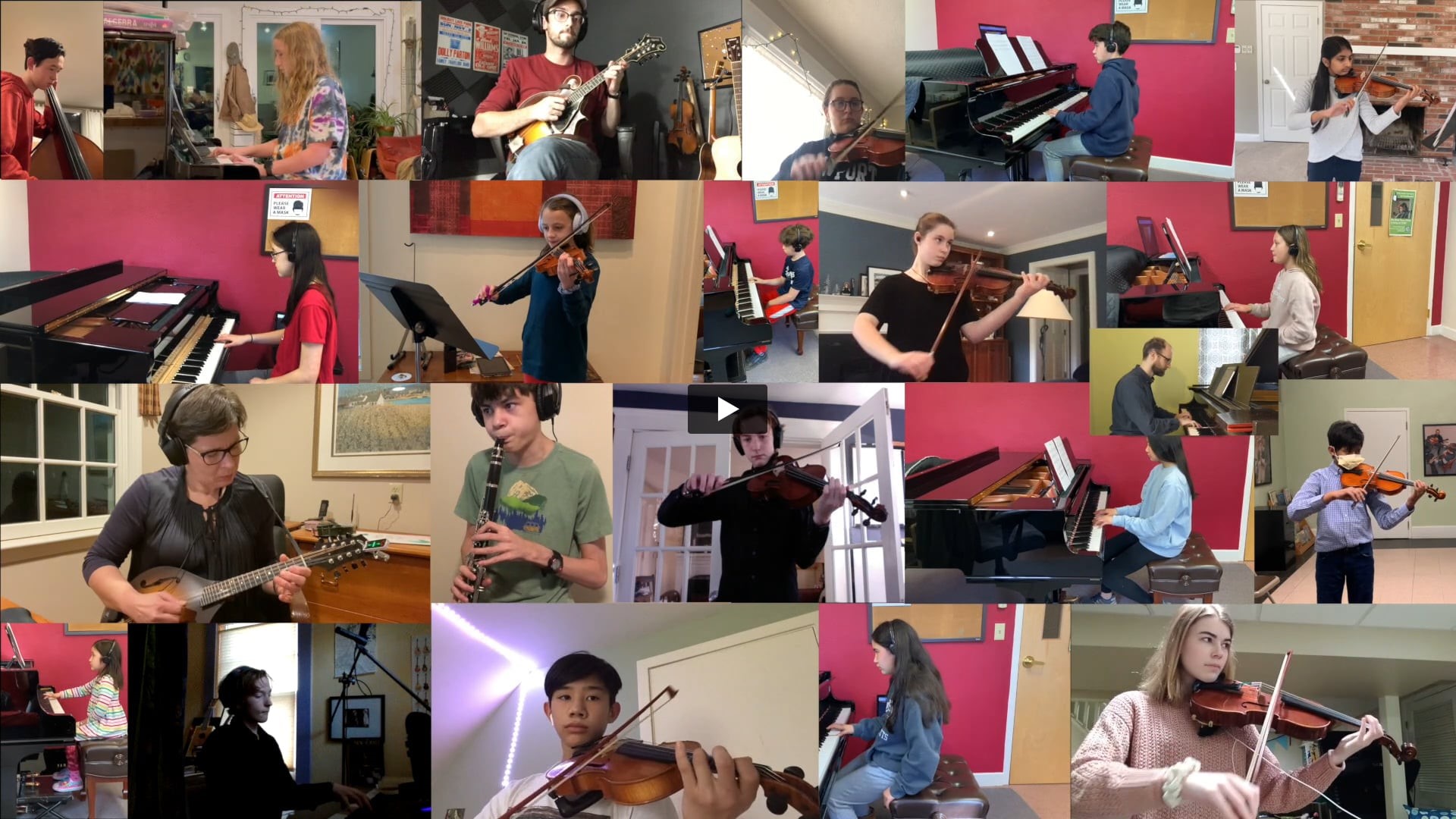Why is it that when we think of classical music, our minds immediately go to Beethoven, Brahms, Chopin, or Mozart?
The influence of racial biases permeated the music world long ago, and not just the classical corner. This spring offered the ideal time to shine the light on and learn about Black composers. Their compilation of work—including compositions that seem to have only recently resurfaced—should be studied, played, and appreciated.
With a series of virtual recital programs on Saturday, April 10th, the CCM Celebrates Black Composers program provided students the opportunity to study and perform music written by Black composers. Throughout history, these oft-neglected composers did not share the limelight they deserved. Too often, long-held racial biases held back Black composers.
Longtime CCM parent Kun Liu summed it up perfectly, “We appreciate the opportunity to learn and to think about history. It’s a time to let us rethink this world.” It’s a time for discovering and learning music that was once long forgotten. It’s a time for learning about Black composers who influenced the music scene of their time and what was to come.
A fascinating story of Black Composer Joseph Bologne
CCM faculty member Justin Meyer recently mentioned the fascinating Black composer Joseph Bologne, which revealed his remarkable story and beautiful music. Joseph Bologne, also known as Le Chevalier de Saint-Georges, commissioned six symphonies by Joseph Haydn and wrote string quartets, operas, and more.
Born to a nobleman and a slave, composer Joseph Bologne and his parents moved to France to have a better life. There he excelled in sports – particularly fencing and boxing – but music was his passion. Despite the Code Noir at the time, his talents flourished and were appreciated, partly because of his known good looks and charm—a sign of the times. He even had a stint as Marie Antoinette’s music teacher!
“There’s a wealth of amazing music that deserves to be studied, performed, and celebrated!” CCM piano department chair and faculty member Keith Kirchoff explained. “In addition to performing pieces from various eras and styles, during the special April 10th recitals, students shared multimedia presentations on composers’ life and creative output. Our goal was not only to hear this great music but also to learn about the brilliant artists behind the notes.”
Orchestrating Harmony and Sharing History
Fortunately, learning and celebrating Black composers goes beyond our CCM community. World-class violinist Rachel Barton Pine and founder of the nonprofit organization Music by Black Composers, wanted to inspire young Black musicians studying classical music by making Black composers’ music available to everyone. Her decades of research uncovered compositions of Black composers that were either never published or out of print.
Ms. Barton Pine spent years discovering Black composers’ music and then cataloging their works, eventually publishing them in music books for students to learn. She’s brought classical Black composers back to life—showcasing their pieces and giving history lessons packed full of interesting facts. Students now can learn who Mozart envied and about Ignatius Sancho, a self-taught British slave who, despite his beginnings, wrote lively happy minuets and dance tunes.
CCM Students Learning Black Composer Compositions
Learning a composer’s history helps students contextualize and connect with their music. It undoubtedly elevates the performance of the compositions. CCM parents Jiwook Kim and Patrick McHale say, “It’s wonderful for Sam not only to perform Ulysses Kay’s work but also to study his life and how it shaped his music!”
McHale say, “It’s wonderful for Sam not only to perform Ulysses Kay’s work but also to study his life and how it shaped his music!”
Students and teaching artists chose pieces from a wide range of genres – classical, folk, jazz, and ragtime – whose composers span the globe. Students of all ages and abilities performed iconic and masterful music pieces by Black composers.
CCM violin faculty member Nicole Parks explains, “We have organized this program to celebrate Black composers to help our students and faculty explore music that might otherwise be unknown to them. It is our duty as educators to be presenting a well-rounded and inclusive education to our students. Since most of the pedagogical repertoire, at least for strings, has been created by white men, we must include music by composers who have historically been under-represented.”
Miles Davis, A Major Jazz Force
CCM student Marcus Hinds learned and performed a great Miles Davis piece. He says, “The song is very creative, and I like that it has a lot of places where one can improvise.” 
Miles Davis may be best known as an influential and acclaimed jazz trumpeter and musician. Still, he was also a highly accomplished composer and bandleader—and just one of the many composers represented at the CCM April 10th recitals. At a young age, Miles Davis caught the attention of Dizzy Gillespie and Charlie Parker. He was already a professional musician at age 17 when he was asked to join these two highly acclaimed musicians on stage. He continually re-invented his music, won 8 Grammy awards and made his mark on Jazz!
“I am glad that CCM is celebrating Black Composers and that Marcus is learning ‘All Blues’ by Miles Davis. This allows him to learn a different genre of music by an African American composer and musician”, says Marcus’ mom, Sandra Hinds. “Sometimes when I hear Marcus reviewing the song with his teacher, Keith (Kirchoff), or when he is practicing, I get the tune stuck in my head. That’s a good thing! We don’t know much about Mr. Davis, so I will get the book Birth of the Cool: How Jazz Great Miles Davis Found His Sound.” And, so the learning continues!
Ignatius Sancho’s Le Vieux Garçon
We also created a school-wide video where students and faculty came together virtually to perform “Le Vieux Garçon” (“The Old Boy”) by Ignatius Sancho. Sancho was born on a slave ship off the coast of Guinea in 1729. He was eventually brought to England, where the Duke and Duchess of Montague taught him literature, writing, and music, and he ultimately became a free man. Demonstrating to our students that Sancho and others like him are as important and valuable as that of more well-known composers is just one small step of the many that we must take to provide a quality music education.
Interested in learning and playing music of Black composers, send us an email about your request. There’s a lot of music to discover!
Back To Top